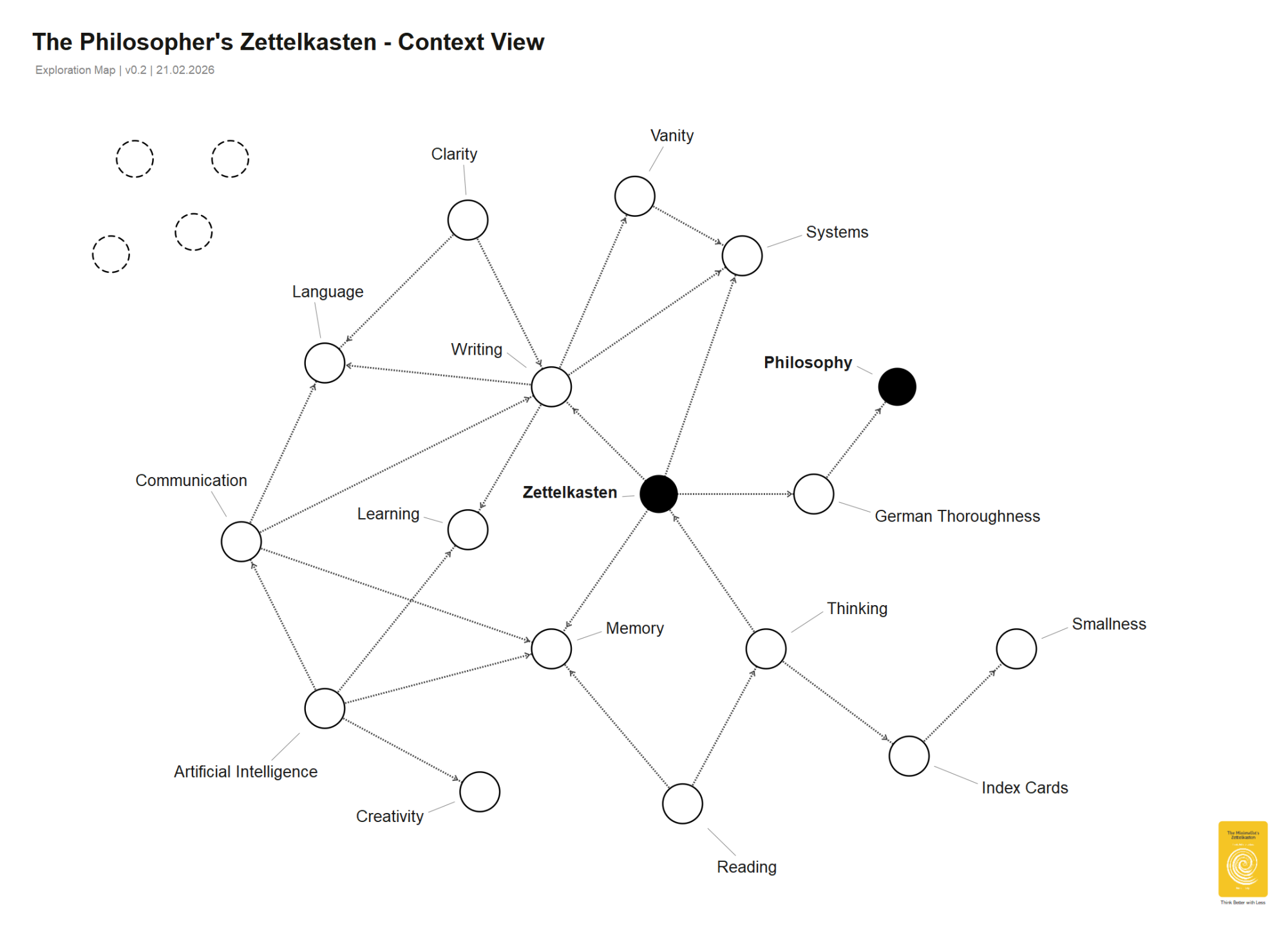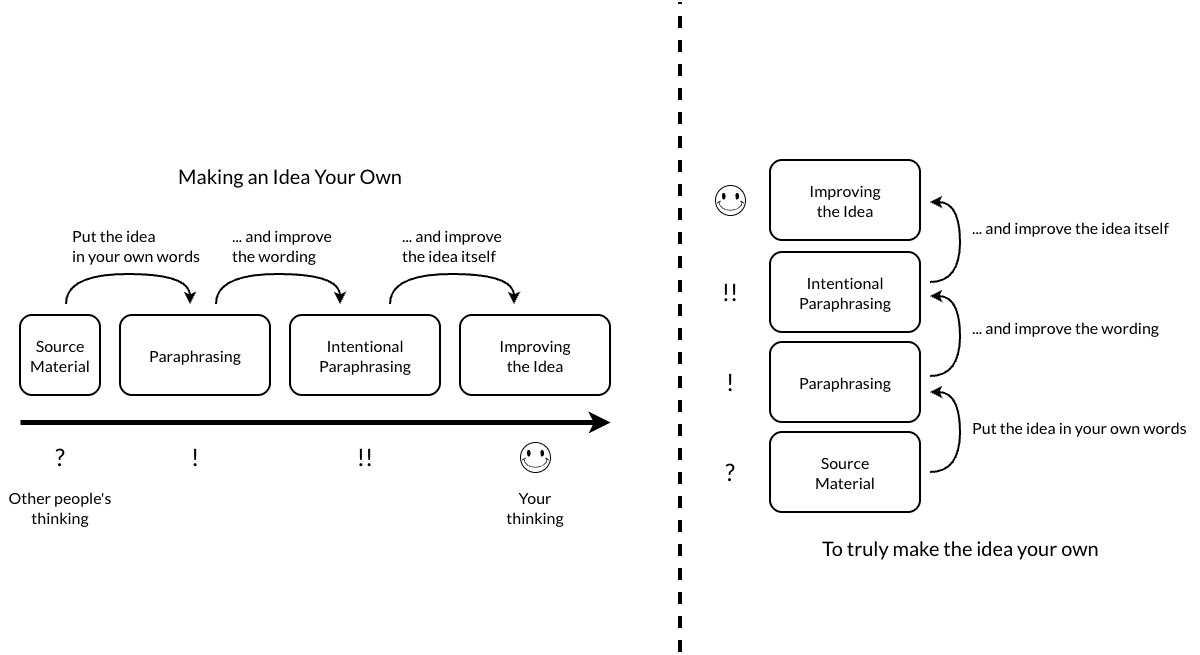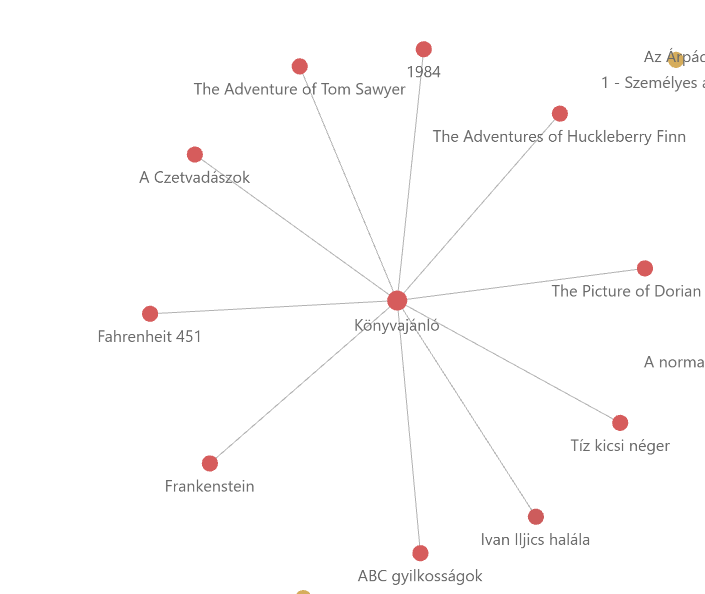-
Open
What are you all using for agent integrations these days?
Tbh when I want agent assistance I use cursor but it’s a lackluster editor. What are you all using for agents in emacs? I’ll be using litellm for the backend so any agent tool would work for me (doesn’t have to support Claude or cursor cli specifically). submitted by /u/nieuweyork [link] [comments]GitHub - srs.el: Spaced repetition system for emacs. (BETA)
Hi all. I created yet another SRS for emacs that I've been using since December and thought I'd share in case anyone thinks it's interesting. I built it because I wanted to be able to embed flashcards in my notes without a lot of syntax. There's a custom variable srs-path-list which defines where srs.el looks for definitions of flash cards, and the metadata associated with those flashcards is stored in srs-history-file. submitted by /u/lispy-hacker [link] [comments]Exporting org-roam notes to Hugo and Quartz
submitted by /u/dnaeon [link] [comments]org-window-habit - A more flexible habit system (now on melpa and with a much more comprehensive README)
About two years ago I posted here about org-window-habit, a package I wrote because I found org-habit's fixed-interval repeater model didn't match how I actually think about habits. At the time, I said I'd put more work into documentation if people were interested — and people were! So here's the update. TL;DR Standard org-habit asks "did you do it today?" — org-window-habit asks "have you done it enough times within this time window?" You define a window duration (how far back to look), a repetition count (how many completions are needed), and an assessment interval (how often to re-evaluate). The package tracks your completions and shows a visual conformity graph in the agenda, with colors indicating whether you're on track. For example, "exercise 5 times per week" becomes: * TODO Exe…What’s the best way to implement CSI u for terminal Emacs?
Some keybindings are eaten by the Terminal Emulator but there is a CSI u mode to send raw keys to Emacs. However Emacs still needs to decode it. I saw some threads on the Emacs mailing list about it but a specific implementation is unclear. What I’m asking is if this is something that can be handled by overriding xterm.el, installing a package, or if any changes to the C core will be required. I’m hoping to implement this the “right way” and modifying Emacs sources is acceptable. submitted by /u/floofcode [link] [comments]Fortnightly Tips, Tricks, and Questions — 2026-02-24 / week 08
This is a thread for smaller, miscellaneous items that might not warrant a full post on their own. The default sort is new to ensure that new items get attention. If something gets upvoted and discussed a lot, consider following up with a post! Search for previous "Tips, Tricks" Threads. Fortnightly means once every two weeks. We will continue to monitor the mass of confusion resulting from dark corners of English. submitted by /u/AutoModerator [link] [comments] -
Open
Sharing my 7 years of Scala journey: From backend to chip design
submitted by /u/doofin [link] [comments] -
Open
neocaml (20260224.1902) --- Major mode for OCaml code
The neocaml package has been updated to version 20260224.1902.eca (20260224.1849) --- AI pair programming via ECA (Editor Code Assistant)
The eca package has been updated to version 20260224.1849.slime (20260224.1834) --- Superior Lisp Interaction Mode for Emacs
The slime package has been updated to version 20260224.1834.test-cockpit (20260224.1810) --- A command center to run tests of a software project
The test-cockpit package has been updated to version 20260224.1810.org-mpv-notes (20260224.1801) --- Take notes in org mode while watching videos in mpv
The org-mpv-notes package has been updated to version 20260224.1801.company-eask (20260224.1651) --- Company backend for Eask-file
The company-eask package has been updated to version 20260224.1651.dumb-jump (20260224.1641) --- Jump to definition for 60+ languages without configuration
The dumb-jump package has been updated to version 20260224.1641.org-roam (20260224.1637) --- A database abstraction layer for Org-mode
The org-roam package has been updated to version 20260224.1637.org-repeat-by-cron (20260224.1617) --- An Org mode task repeater based on Cron expressions
The org-repeat-by-cron package has been updated to version 20260224.1617.telega (20260224.1606) --- Telegram client (unofficial)
The telega package has been updated to version 20260224.1606.ollama-buddy (20260224.1546) --- Ollama LLM AI Assistant ChatGPT Claude Gemini Grok Codestral DeepSeek OpenRouter Support
The ollama-buddy package has been updated to version 20260224.1546.agent-shell (20260224.1533) --- Native agentic integrations for Claude Code, Gemini CLI, etc
The agent-shell package has been updated to version 20260224.1533.dracula-theme (20260224.1455) --- Dracula Theme
The dracula-theme package has been updated to version 20260224.1455.lsp-mode (20260224.1434) --- LSP mode
The lsp-mode package has been updated to version 20260224.1434.kotlin-ts-mode (20260224.1344) --- A mode for editing Kotlin files based on tree-sitter
The kotlin-ts-mode package has been updated to version 20260224.1344.org-mem (20260224.1229) --- Fast info from a large number of Org file contents
The org-mem package has been updated to version 20260224.1229.gnosis (20260224.1202) --- Knowledge System
The gnosis package has been updated to version 20260224.1202.truename-cache (20260224.1123) --- Efficiently de-dup file-names
The truename-cache package has been updated to version 20260224.1123.pi-coding-agent (20260224.1042) --- Emacs frontend for pi coding agent
The pi-coding-agent package has been updated to version 20260224.1042.daselt (20260224.1036) --- Module for the Daselt configuration scheme
The daselt package has been updated to version 20260224.1036.fj (20260224.918) --- Client for Forgejo instances
The fj package has been updated to version 20260224.918.ready-player (20260224.915) --- Open media files in ready-player major mode
The ready-player package has been updated to version 20260224.915.magnus (20260224.457) --- Manage multiple Claude Code instances
The magnus package has been updated to version 20260224.457.codespaces (20260224.403) --- Connect to GitHub Codespaces via TRAMP
The codespaces package has been updated to version 20260224.403.ai-code (20260224.346) --- Unified interface for AI coding backends such as Claude Code, Codex CLI, Gemini CLI, Copilot CLI, Opencode, Grok CLI, Aider CLI, etc
The ai-code package has been updated to version 20260224.346.etc-sudoers-mode (20260224.326) --- Edit Sudo security policies
The etc-sudoers-mode package has been updated to version 20260224.326.oai (20260224.39) --- AI-LLM chat blocks for org-mode
The oai package has been updated to version 20260224.39.gnus-alias (20260224.27) --- An alternative to gnus-posting-styles
The gnus-alias package has been updated to version 20260224.27.compile-angel (20260224.27) --- Automatically Compile Elisp files (auto-compile alternative)
The compile-angel package has been updated to version 20260224.27. -
Open
-
Open
A small railroad style error handling DSL that abstracts over Bool, Maybe, Either, Traversables etc.
Check out how terse my Servant http handler is: haskell serveUserAPI :: ServerT UserAPI (Eff UserStack) serveUserAPI = registerStart where registerStart :: EmailAddress -> Eff UserStack Text registerStart email = do time Eff UserStack Text registerStart email = do time throwError $ err503 Right Nothing -> pure () -- good – no user found Right (Just _) -> throwError err409 -- conflict – already registered -- Create JWT jwtResult <- ma… -
Open









